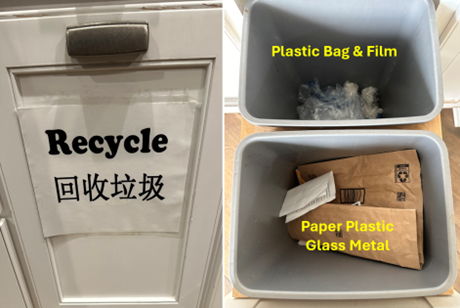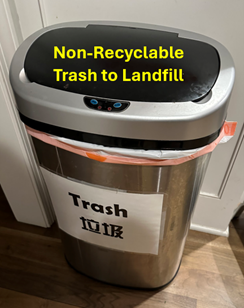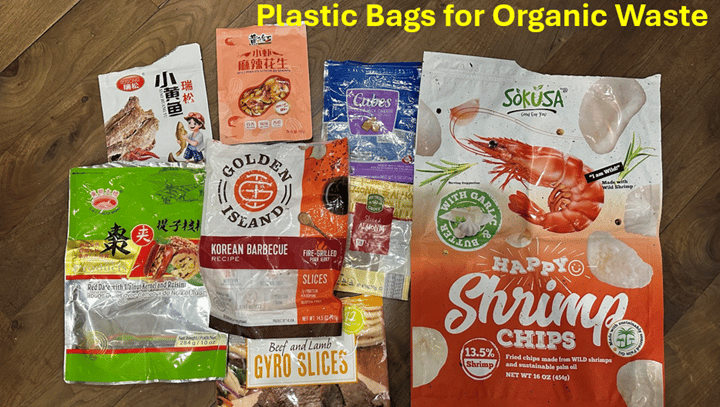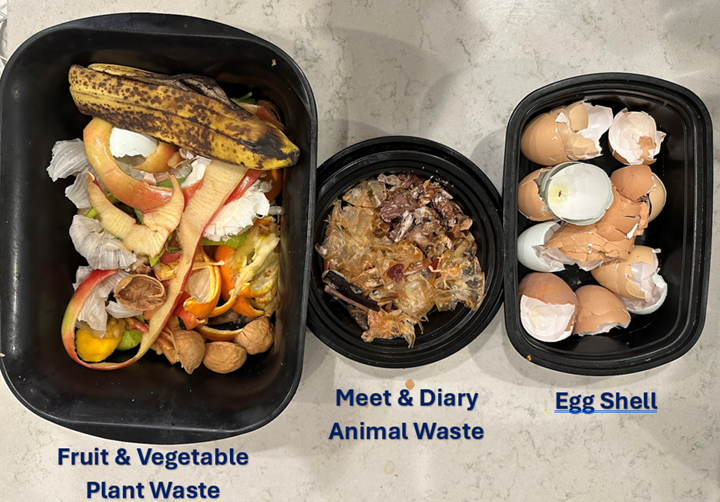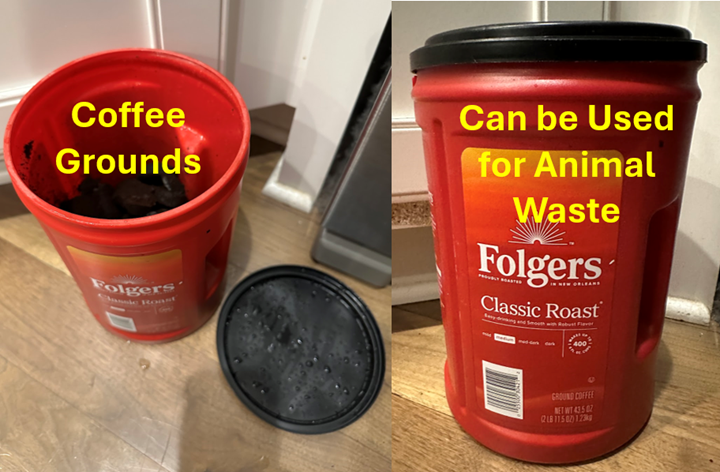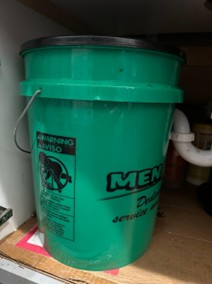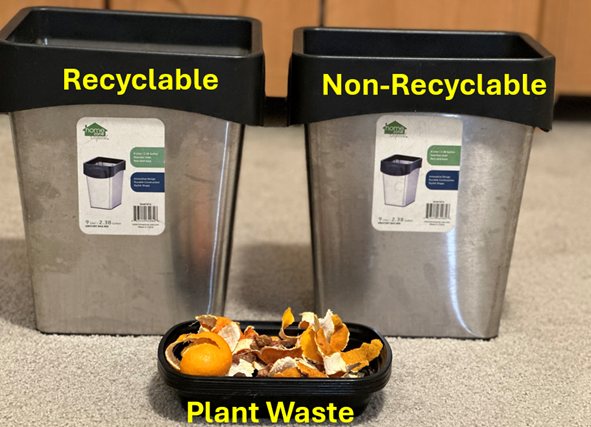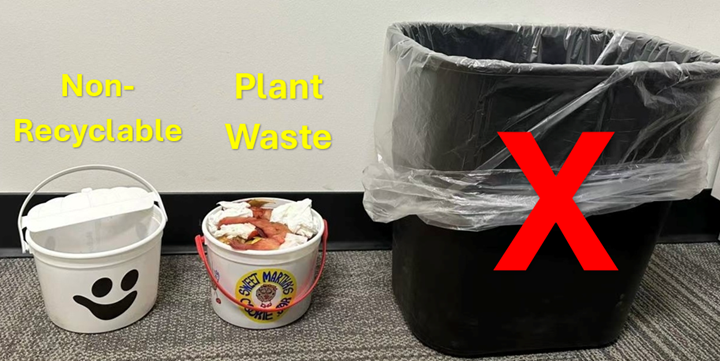How We Sort Waste at Home
How to sort and store household waste appropriately and convenient? What is the most reasonable way to dispose different waste? Let me share how we sort and dispose waste at our home. Hopefully it can give you some ideas.
WASTEENGLISHLIFESTYLERECYCLE
Jing Li
2/13/20255 min read
In March 2024, several cities in the western suburbs of Minnesota, including Plymouth and Maple Grove, began to recycle organics! This initiative was much later than some surrounding cities, and even many years later than those at east and west coasts. But it is better late than never!
When the city released the news, it caused heated discussions on many social media. People were wondering what impact this would have on our daily life. How to sort and store household waste appropriately and conveniently? What is the most reasonable way to dispose of different waste?
Let me share how we sort and dispose of waste at our home. Hopefully it can give you some ideas.
Kitchen Waste Sorting
First of all, I bought a trash can for non-recyclable waste. For the two standard hidden trash cans in the kitchen, one is used to hold recyclables, and the other for plastic bags and films. I also printed signs to make it easier for visiting friends to dispose of trash correctly.
Organic Waste Sorting
We separate organics into four categories, mainly plant-based organic waste and animal-based organic waste.
We started doing this when we started to do backyard compost for our vegetable garden. The city stipulates that animal organic waste cannot be included in the compost bin. First, animal organic waste stinks badly if exposed. It will also attract the attention of live animals. One of the biggest advantages of this kind of sorting is that the compost bin does not smell at all, on the contrary, it gives out a special fragrance. If you place such a compost bin in a corner in the vegetable garden, you will also harvest a lot of earthworms.
In order to solve the problem of smelly animal organic waste, I collected a lot of durable plastic bags with seals on top (like a Ziplock bag). Such plastic bags cannot be recycled with other stretchable plastic bags, and can only be thrown into garbage cans. Using them to hold animal organic waste not only seals in the odor, but also makes the best use of these bags.
Note:
As a rule, only non-black color No. 1-PETE or PET (Polyethylene Terephthalate), No. 2 HDPE (High Density Polyethylene), and No. 5 PP (Polypropylene) plastics can be recycled
Only products made of one pure material can be recycled. If various materials are combined together, such as coated paper plates, layered plastic bags, toys, etc., cannot be recycled.
Only stretchable plastic bags or films, usually No. 2 HDPE (Hi Density Polyethylene) and No. 4 LDPE (Low Density Polyethylene) plastic can be recycled. Sturdy food packaging bags cannot be recycled.
Plastic bags cannot be thrown into curbside recycling carts. Need to take it to the store who has a plastic bag recycling box to recycle. Alternatively, you can collect a lot and take it to the county recycling center to recycle.
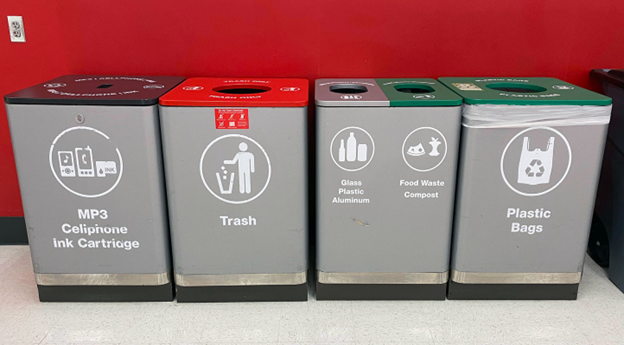

I would leave them outside in the winter and in the garage during the summer. If you still concern about the smell during hot days, you can put it in the freezer. Since animal organic waste is much less than plant organic waste, it won’t take up much space in your freezer.
In the past, I would throw bags filled with animal organic waste into garbage cans. In summer, we sometimes bury them in the vegetable garden. The advantage of doing this way is that the garbage can would not stink any more. Now our city has started organic waste collection, I transfer the animal organic waste into biodegradable plastic bags, and place it into the organic recycling cart before garbage collection day.
We use these kinds of black containers for the various organic waste. Although these black containers are made of No. 5 plastic, they cannot be recycled. The reason is that black plastic is not picked up by optical scanners at the recycling facilities that sort and process the recyclables. Find out more at https://www.greenmatters.com/p/black-plastic-recyclable. Using them this way also realizes some of their value.
My family also separates the eggshells because we want to use them as base fertilizer which needs to be crushed finely before use.
Since we bought a coffee machine, the coffee grounds have been collected separately, the reason is that they need to be fermented separately before use. If you don’t need this, coffee grounds are plant organic waste.
For plant organic waste, to reduce the number of trips to the backyard compost bin, I bought a plastic paint bucket and lid, and place the set under the kitchen sink. After the organic waste on the countertop is full, dump it into this bucket, so that we only need to run to the compost bin once every one to two weeks. If you don't compost in your backyard, you can also use this method to collect organic waste. Before garbage collection day, dump it into a biodegradable plastic bag, throw it into the organics cart. By doing this, the compostable plastic bags will not degrade in advance due to being left out for a long time or the weather is too hot, causing the leakage of organic waste.
It must be emphasized that the following waste cannot be put into organic waste cart or compost:
Pet poop and bedding materials
Household cleaning and baby wipes
Diapers and sanitary napkins
Drying sheet and makeup remover wipe
Grease
Plastic bags and foam
Products marked Biodegradable
Recyclable paper, metal, glass and plastic
Yard waste
Sorting in other rooms and in office
Other rooms generate much less garbage, but can also be sorted easily.
Plant organic waste is stored in a small food container, taken to the kitchen and dumped into the organic waste container.
By doing this, the dry trash will not smell at all, so plastic bags are not needed in office trash cans. They will be dumped into the large trash can or recycling cans in the kitchen before collection.
I also brought this kind of waste sorting method to the office. Take the organic waste home to compost and throw the non-recyclable waste into the company's big trash can. This eliminates the need of the big garbage bags used to line up the office trash can.
Ok, above is how we sort waste at our home and in the office. Hope it will be helpful to you.
The following article is our city’s information on organic waste
Organic Waste Reduction and Composting https://www.plymouthmn.gov/departments/administrative-services-/communications/environmental-education/composting
Some people may ask, what kind of compostable bags should I buy? As the amount and frequency of organic waste that each household generates are different, it’s hard to give you a definitive recommendation. The principle is to buy one that is composable, and BPI certified and suits your house’s needs.
Let’s work together to leave a clean and beautiful earth for generations to enjoy. If you have better or other methods to share, or are interested in joining our environmental protection group, please email contact@ziran.ngo.
